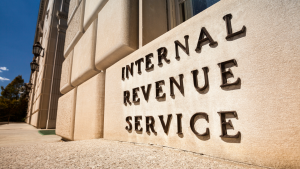The United Way of the Bay Area (UWBA) is expected to appeal a judge’s decision ordering it to pay Network for Good (NFG) almost $5 million.
In a tentative judgment handed down in October, San Francisco Superior Court Judge Robert Dondero ruled that San Francisco-based UWBA was the “alter ego” of PipeVine, a donations-processing company that folded in 2003 without paying $17.7 million to charities, including donations made through NFG. The judge awarded $4.78 million to the Bethesda, Md.-based nonprofit but not the $19 million in punitive damages it sought.
PipeVine was spun off from UWBA in July 2000 to handle pledge processing and campaign management, as well as human resources and accounting. By June 2003, PipeVine ceased operations because of major losses, including checks outstanding that were almost $1 million in excess of its cash accounts balance, and owed $4.5 million to charities for processed donations that were not distributed.
Court documents also allege that PipeVine, from the first day of operations, was using new donations to charities to pay old obligations as well as operating expenses.
Appointed by California’s attorney general to distribute PipeVine’s assets to creditors, David Bradlow estimated the firm had received $17.7 million in donations that were not distributed to charities, $2.9 million of which had been designated through NFG to about 2,300 charities. In August 2003, NFG paid $2.35 million to those charities and a year later (November 2004) filed suit against UWBA, alleging it is liable as PipeVine’s alter ego.
“We strongly disagree with the court’s view of the facts,” UWBA said in a statement released after the decision. “We believe the evidence simply does not support the court’s findings and will file an objection to the court’s order.
“While we strongly disagree with many of the court’s tentative findings, there are two key assertions in the case that UWBA wishes to address: first, that UWBA controlled PipeVine’s operations, and second, that UWBA undercapitalized PipeVine at the time of separation, causing it to fail.”
In response to the claim of an “alter ego,” the statement continued: “UWBA and PipeVine were two legally and wholly separate and independent organizations. Just like every other customer, UWBA was not privy to, nor did we control, any of PipeVine’s internal management decisions, nor their internal operations and financials. Moreover, because UWBA had absolutely no direct relationship with NFG, we believe that our organization bears no responsibility to reimburse them for losses caused by PipeVine’s closure.”
As to the undercapitalization of PipeVine: “This is simply not true, as evidenced by Grant Thornton’s audit of PipeVine’s books following the first 12 months of separate operation. At that time, independent accounting firm Grant Thornton issued a clean audit of PipeVine’s financial statements, giving no reason to believe that it would be unable to continue successful operation.
“United Way of the Bay Area was one of many organizations, like NFG, that was hurt by PipeVine’s closure. We continue to believe that their allegations are false, groundless and have no basis in fact. After filing an objection to the court’s tentative findings, UWBA’s board will continue to consider all options, including appealing the decision.”
Maria Stokes, public relations director at UWBA, said once an appeal is filed, it could be an 18- to 24-month process. UWBA’s insurance policy would be expected to cover any judgments, and also has covered legal fees, she said. “Our company has supported us throughout, and continues to stand behind us. We don’t expect donations to be impacted at all.”
James Joseph, a partner with Arnold & Porter in Washington, D.C., which represented NFG, estimated the judgment is still a few months from being final. He said the strength of the decision can be seen by how strongly the judge felt about UWBA’s “misconduct and misdeeds. It really was a complete repudiation of the UWBA’s action, the oversight by the board, actions by management. It seemed to be a complete failure of all the safety valves that should be in place to prevent this kind of misconduct.”
Joseph was not surprised that punitive damages were not awarded, knowing how difficult they can be to get imposed. “Punitive damages have a very high legal standard.”
The lawsuit alleges that senior executives and board members at UWBA ignored repeated warnings and information about serious problems with PipeVine. George Chen became UWBA’s CFO in May 2001 and soon after raised concerns with CEO Anne Wilson. In November 2002, Chen questioned a business plan presentation that showed “breakeven performance” for PipeVine by the following spring, which was a concern since that meant it was “losing money on a realtime basis.”
PipeVine employees handled all of UWBA’s financial operations, according to the suit, and in February 2003, months before PipeVine folded, the two organizations shared office space in San Francisco.
By 2003, Chen discovered PipeVine had transferred $2.8 million from UWBA’s bank account into PipeVine’s account, according to court documents. Later that year, a senior volunteer recruited to analyze the business model reported to Wilson that PipeVine was “seriously broken and cannot be fixed” without removing President Frank Melcher and CFO Robert Martin.
***
This article is from NPT Weekly, a publication of The NonProfit Times.
Subscribe to The NPT Weekly eNewsletter or any of our other enewsletters and get the latest news and ideas related to fundraising delivered to your inbox.











